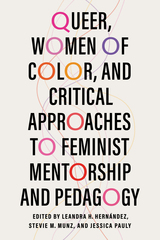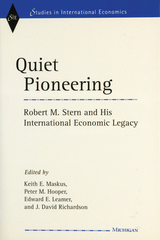
An esteemed teacher offers a major reassessment of the history of Greece from prehistoric times to the rise of Alexander. This is a work of prodigious scholarship written in grand style.
John Fine surveys the archaeological work that has revealed so much about the civilization of Crete and Mycenaean Greece, and discusses the age of colonization during which Greek colonies were established from the Crimea to the Nile, from the Caucasus to Spain. Analyzing social and economic developments, as well as foreign and inter-city affairs, he assesses the history, culture, and democracy of Athens, and Sparta’s institutions and military exploits; recounts the Greeks’ relations and then war with the Persian empire; details alliances, struggles, and the varying fortunes of the Greek city-states; and relates the rise of Macedon. Fine treats the Greeks’ story in the context of events elsewhere in the eastern Mediterranean. Throughout he indicates the nature of the evidence on which our present knowledge is based, masterfully explaining the problems and pitfalls in interpreting ancient accounts. The Ancient Greeks is a splendid narrative history and a refreshing reinterpretation that will please students of ancient history, and everyone interested in early civilizations.

This fascinating examination of the development of virtue ethics in the early stages of western civilization deals with a wide range of philosophers and schools of philosophy—from Socrates and the Stoics to Plato, Aristotle, and the Epicureans, among others. This introduction examines those human attributes that we have come to know as the "stuff" of virtue: desire, happiness, the "good," character, the role of pride, prudence, and wisdom, and links them to more current or modern conceptions and controversies.
The tension between viewing ethics and morality as fundamentally religious or as fundamentally rational still runs deep in our culture. A second tension centers on whether we view morality primarily in terms of our obligations or primarily in terms of our desires for what is good. The Greek term arete, which we generally translate as "virtue," can also be translated as "excellence." Arete embraced both intellectual and moral excellence as well as human creations and achievements. Useful, certainly, for classrooms, Virtue Ethics is also for anyone interested in the fundamental question Socrates posed, "What kind of life is worth living?"

A Times Literary Supplement Best Book of the Year
From “one of the most thoughtful ancient historians in Britain over more than half a century” (Mary Beard) comes a powerful look at how the modern world has understood the ancient Greeks and why their legacy still matters today.
“This majestic book by Oswyn Murray has been long and eagerly awaited . . . and its quality and scope exceed expectations.” —Edith Hall, BBC History Magazine
The study of ancient Greece has been central to Western conceptions of history since the Renaissance. The Muse of History traces the shifting patterns of this preoccupation, as successive generations reinterpreted the Greeks in light of their contemporary worlds. Thus, in the eighteenth century, the conflict between Athens and Sparta became a touchstone in the development of republicanism, and in the nineteenth, Athens came to represent the democratic ideal. Amid the twentieth century’s ideological conflicts, Greek suffering inspired defenses against nationalism, Nazism, communism, and capitalism.
Oswyn Murray draws powerful conclusions from the ever-changing narrative of ancient Greece, in the process illuminating grand theories of human society articulated by the likes of Hegel, Burckhardt, Nietzsche, and Braudel. Along the way, The Muse of History offers behind-the-scenes glimpses of figures who shaped the study of ancient Greece. We sit in on a class with Arnaldo Momigliano; meet Moses Finley after his arrival in England; eavesdrop on Paul Veyne, Jean-Pierre Vernant, and Pierre Vidal-Naquet; and rediscover Michel Foucault.
A thrilling work of historiography, The Muse of History reminds us that the meaning of the past is always made in and for the present.
READERS
Browse our collection.
PUBLISHERS
See BiblioVault's publisher services.
STUDENT SERVICES
Files for college accessibility offices.
UChicago Accessibility Resources
home | accessibility | search | about | contact us
BiblioVault ® 2001 - 2025
The University of Chicago Press









